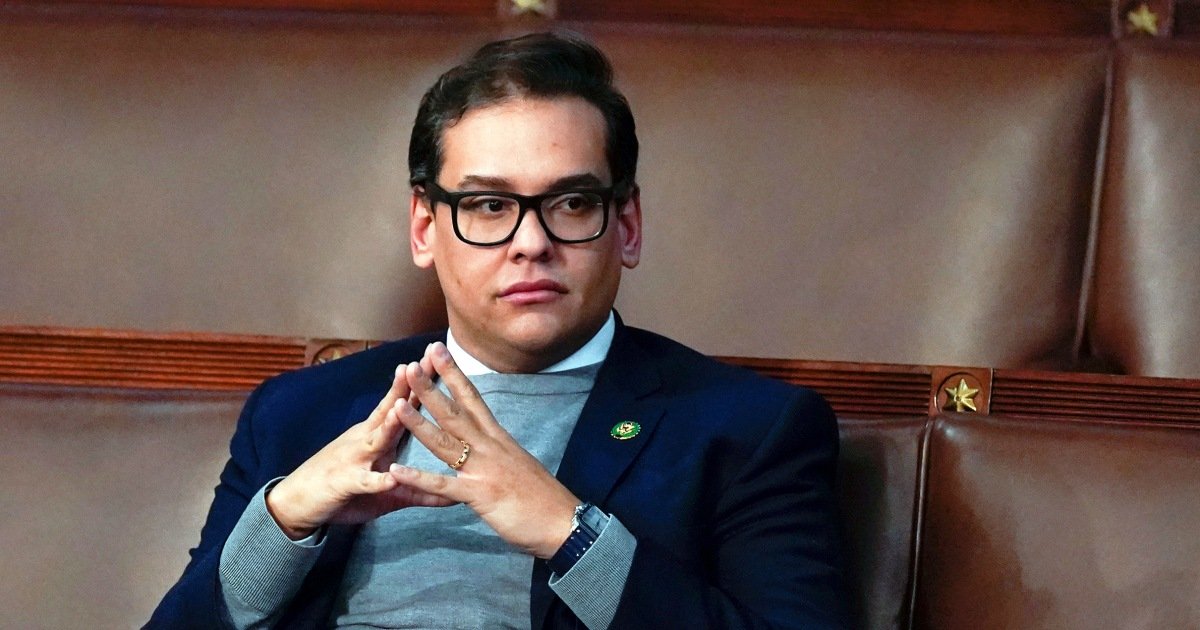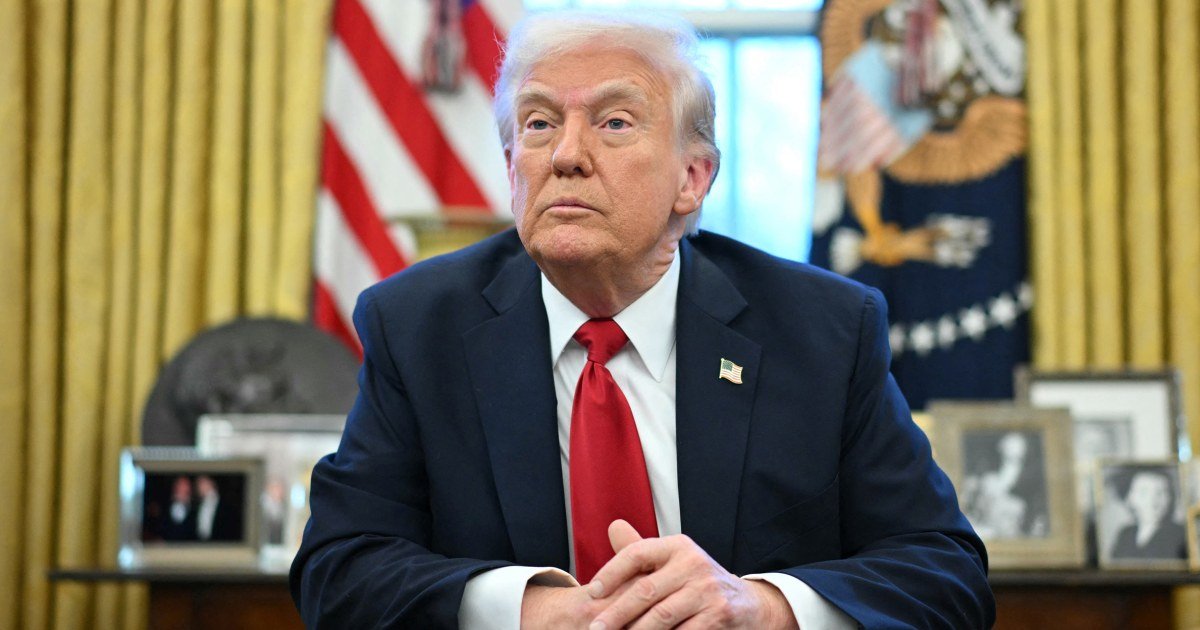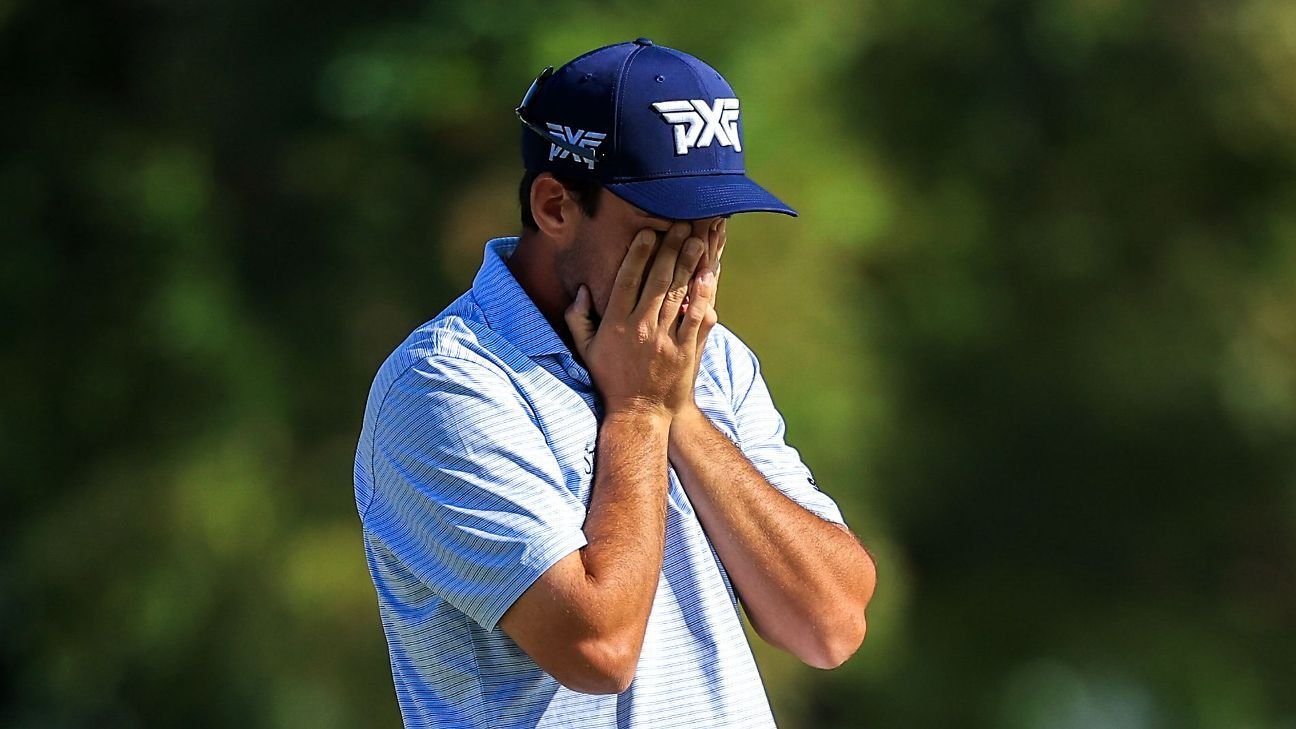In these disorienting days, Canadian leaders are responding in real time to a deeply uncertain world.
On the day the president of the United States launched a global trade war, Alberta Premier Danielle Smith chose to look on the bright side. The United States, she wrote, had decided to “uphold the majority of the free trade agreement … between our two nations.” And while some tariffs remained in place, “it appears the worst of this tariff dispute is behind us.”
At least two parts of the latter comment might be disputed — that the “worst” is truly “behind us,” and that the challenge facing Canada amounts to a “tariff dispute.” But given her previously stated hope that the present conflict between the United States and Canada could be put on pause until after the federal election, it is not surprising that she leapt at the modicum of solace to be found for Canada in Wednesday’s announcement by Donald Trump.
Conversely, at a rally in Kingston, Ont., Conservative Leader Pierre Poilievre criticized what he called “another unfair attack” by the United States on the Canadian economy. The president, Poilievre said, was “betraying America’s closest friend.”
But Poilievre’s phrasing might raise another question: Is it still fair to describe Canada and the United States as friends? Do we share values, interests and goals? Does the United States even view anyone as a friend? Would it be more accurate to say that we are now merely neighbours?
(In an interview with CBC’s Frontburner this week, Jason Stanley, an American scholar in fascism who is relocating to Toronto, said both Canada and Ukraine are now “bordered by autocratic dictatorships.”)
On Thursday morning, Prime Minister Mark Carney spoke to reporters on Parliament Hill and underlined the stark language he used a week ago when he said that the “old relationship” with the United States — one based on “deepening integration of our economies and tight security and military co-operation” — was now “over.”
“The global economy is fundamentally different today than it was yesterday,” Carney said.
Prime Minister Mark Carney, speaking from Ottawa on Thursday, also said President Donald Trump’s latest tariff actions mean the end of Canada’s historic trade relationship with the U.S., but maintained the U.S. is still Canada’s main security and defence ally.
In so many words, he seemed to suggest that the old world was dying and a new world was struggling to be born.
There is some general agreement that Canada must act urgently in response to what is happening in the United States. But Carney’s statements point to what might be a split in the way the Liberal and Conservative leaders view — or at least talk about — the tumult that is unfolding.
Poilievre explains his approach
In a speech staged on Wednesday morning, hours before Trump announced his latest tariffs, Poilievre said that as prime minister he would propose to the president that they expedite a review and renegotiation of Canada-United States-Mexico Agreement (CUSMA). And while that was occurring, both Canada and the United States would agree to suspend their tariffs against each other.
It’s at least unclear that Donald Trump would be inclined toward such a show of good faith — he imposed tariffs during the negotiation of CUSMA in 2018, and even kept those import taxes in place for a while after Canada and the United States had agreed to a new trade deal.
Perhaps by May, when Poilievre would hypothetically be in a position to make his offer, the economic pain in the United States would be such that Trump would be looking for an excuse to backtrack. But if Trump views tariffs as a permanent fixture of his country’s new economic and fiscal agenda, the notion of tariff-free trade with the United States may now be wishful thinking.
Poilievre said that in any renegotiation he would draw a number of “red lines.” He would, he said, protect control over “our border, our security, our resources, our farmers, including our supply managed farmers, our fresh water, our automotive workers … our sovereignty, our laws, our currency, our dollar, our land, our waters, our sky, our culture, our official languages … our resources and Indigenous rights.”
In fairness, it’s hard to imagine any candidate for office in Canada getting elected on a promise to surrender Canadian control over any of those things.
But the Conservative leader said he would have one thing to offer the Americans — increased defence spending. More specifically, Poilievre said that “any extra [government] revenue generated from expanded trade with the United States will go right into our armed forces.”
Conservative Leader Pierre Poilievre, speaking from Kingston, Ont., on Day 12 of the election campaign, reacts to U.S President Donald Trump’s sweeping tariffs announced on Wednesday.
There is now widespread agreement on the need to spend more on the Canadian military — and Poilievre committed to spending an amount equivalent to two per cent of Canada’s GDP. But is it possible that expanded trade with the United States would provide for such an increase? And is expanded trade with the United States something Canada should still be aiming for?
In his “Canada First” speech in February, Poilievre said the United States had two options.
In the first, the U.S. administration could carry out “an unprovoked attack” on the Canadian economy, weakening both countries, forcing Canada to “seek friends everywhere else” and allowing “our enemies” to grow stronger. On the other hand, Canada and the United States could “trade even more,” co-operate to counter threats like fentanyl and “team up against the unfair trading practices of other countries.”
Poilievre’s offer had something in common with what former prime minister Justin Trudeau had previously suggested — that if Donald Trump was truly interested in ushering in a new “golden age” for the United States, then the president should look to “partner” with Canada on things like critical minerals, energy and other resources. Ontario Premier Doug Ford has also pitched “Fortress Am-Can,” touted as a “renewed strategic alliance” between Canada and the United States.
But does Poilievre still believe that second option is on the table?
Carney says the old world order is ‘over’
In his own response on Thursday morning, Carney held out the possibility that the era of an integrated automotive sector — which dates to the Auto Pact of 1965 — might still be saved, but he doubled down on the idea that something has changed.
“The system of global trade anchored on the United States that Canada has relied on since the end of the Second World War — a system that, while not perfect, has helped to deliver prosperity for our country for decades — is over,” he said.
“Our old relationship of steadily deepening integration with the United States is over. The 80-year period when the United States embraced the mantle of global economic leadership, when it forged alliances rooted in trust and mutual respect, and championed the free and open exchange of goods and services, is over.”
Carney said this was a “tragedy,” but a “reality.” And he said Canada, under his government, would “take a leadership role in building a coalition of like-minded countries” who believe in the values of international co-operation and free trade.
Asked by reporters to further explain his view of the Canadian-American relationship, Carney said the United States is “our most important security ally” — though he also said he would be looking to diversify the sources of Canada’s military equipment. But there needs to be, he said, “a renegotiation and a reaffirmation of which elements of the commercial relationship, the trading relationship, stand.”
At Issue this week: Canada dodges Trump’s latest wave of global tariffs, but with some sectors already reeling, can it be considered a win? How the U.S. president’s moves are shifting the federal election campaign. And controversial candidates get booted off the ballot.
He emphasized that “part of what our relationship [that] has been based on … a degree of integration between our economies, our trade becoming closer and closer together … that is over.” In contrast, he held out the suggestion, floated in some circles, of pursuing a customs union with the United States. As an overall approach, Carney said, getting closer to the United States would carry “tremendous risks.”
While Poilievre also advocates reducing Canada’s reliance on the United States, Carney’s language — alongside some of his policy proposals, including new investments in the auto sector — is decidedly more stark.
At the same time, markedly reorienting Canada toward other countries would hardly be easy — if it was, some previous prime minister probably would have done it. It’s now been more than half a century since Mitchell Sharp’s “third option” was briefly a point of fascination.
The rhetorical differences between Carney and Poilievre might speak to a new split in Canadian public opinion. According to the Angus Reid Institute, 80 per cent of Liberal supporters think Canada should “play hardball” with Donald Trump. But 50 per cent of Conservative supporters think Canada should try to negotiate for lower tariffs.
It is by now well established that no Canadian leader is interested in being governor of America’s 51st state. But the next three weeks of this federal election campaign might be about starting to answer the larger question of how Canadians should think about their neighbour and the world beyond this continent.











